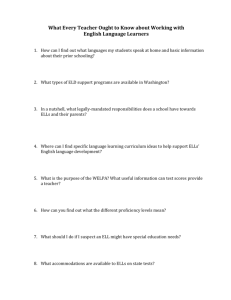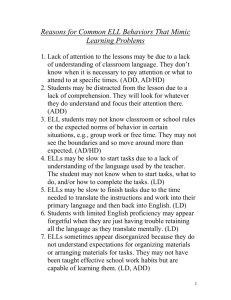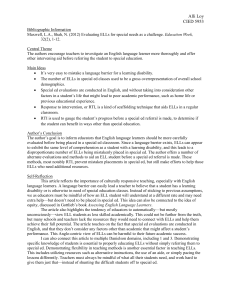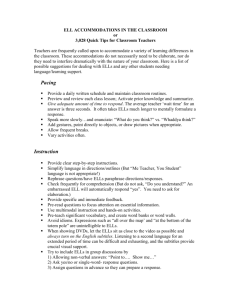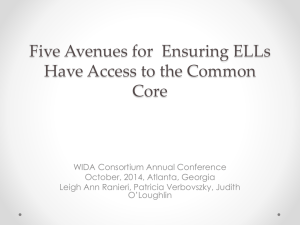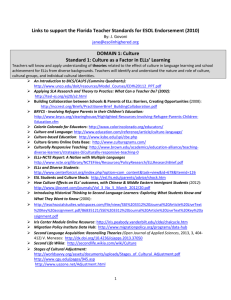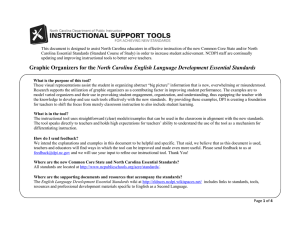Speech Modifications for ELLs When you have ELLs in the
advertisement
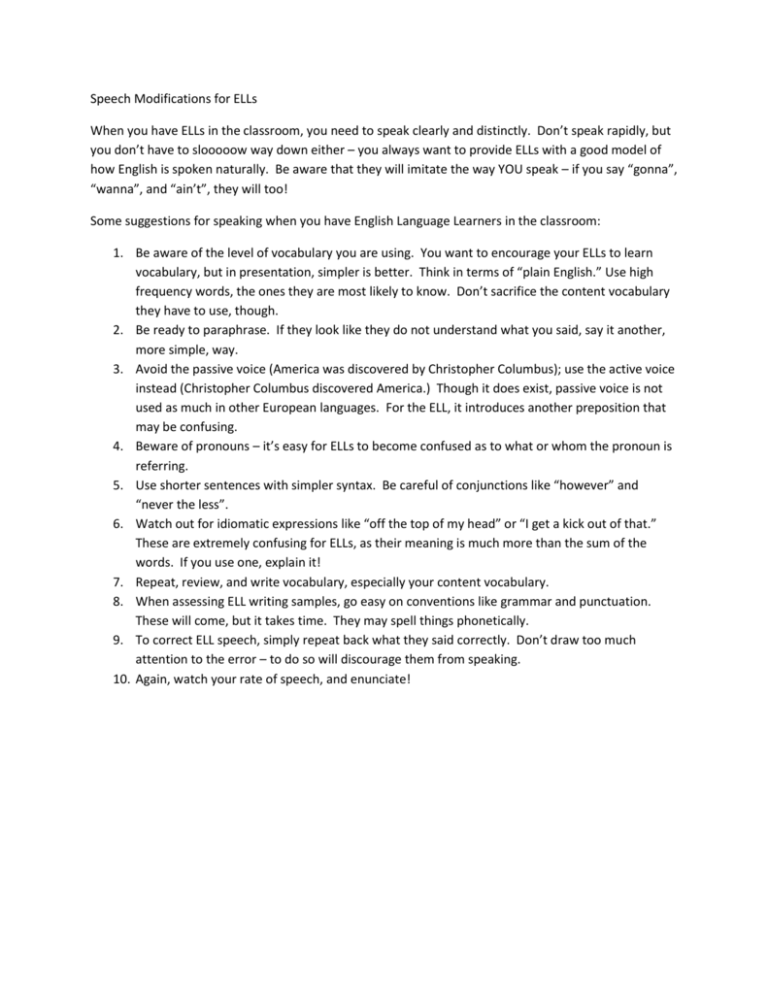
Speech Modifications for ELLs When you have ELLs in the classroom, you need to speak clearly and distinctly. Don’t speak rapidly, but you don’t have to slooooow way down either – you always want to provide ELLs with a good model of how English is spoken naturally. Be aware that they will imitate the way YOU speak – if you say “gonna”, “wanna”, and “ain’t”, they will too! Some suggestions for speaking when you have English Language Learners in the classroom: 1. Be aware of the level of vocabulary you are using. You want to encourage your ELLs to learn vocabulary, but in presentation, simpler is better. Think in terms of “plain English.” Use high frequency words, the ones they are most likely to know. Don’t sacrifice the content vocabulary they have to use, though. 2. Be ready to paraphrase. If they look like they do not understand what you said, say it another, more simple, way. 3. Avoid the passive voice (America was discovered by Christopher Columbus); use the active voice instead (Christopher Columbus discovered America.) Though it does exist, passive voice is not used as much in other European languages. For the ELL, it introduces another preposition that may be confusing. 4. Beware of pronouns – it’s easy for ELLs to become confused as to what or whom the pronoun is referring. 5. Use shorter sentences with simpler syntax. Be careful of conjunctions like “however” and “never the less”. 6. Watch out for idiomatic expressions like “off the top of my head” or “I get a kick out of that.” These are extremely confusing for ELLs, as their meaning is much more than the sum of the words. If you use one, explain it! 7. Repeat, review, and write vocabulary, especially your content vocabulary. 8. When assessing ELL writing samples, go easy on conventions like grammar and punctuation. These will come, but it takes time. They may spell things phonetically. 9. To correct ELL speech, simply repeat back what they said correctly. Don’t draw too much attention to the error – to do so will discourage them from speaking. 10. Again, watch your rate of speech, and enunciate!
